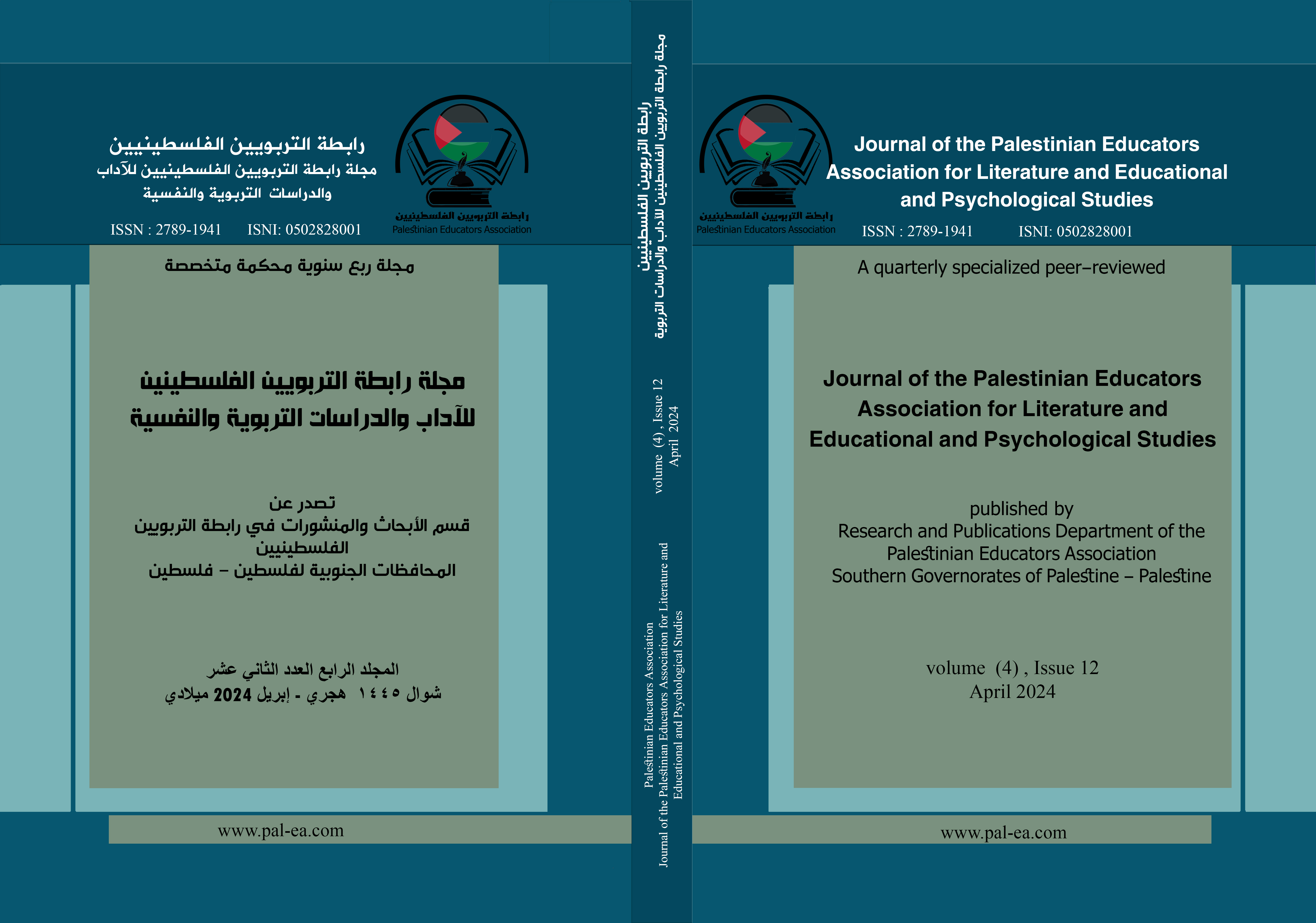Digital empowerment and the use of electronic platform and its impact on learning and teaching
Keywords:
Distance learning . Electronic platforms. Professional development. Blended educationAbstract
The idea of the initiative was launched out of the teachers’ need for professional development, especially in the field of using technology, which has become necessary to use it in many areas of life, including the teaching and learning process, keeping pace with the rapid technological developments and modern methods of education, and facing the challenges facing the educational process from a distance, and then the idea of twinning between schools came in support of this initiative.
The initiative is based on the digital empowerment of teachers and the use of technology and global visual electronic platforms in the educational process, by training a group of English language teachers on many global educational electronic platforms that are used to communicate between teachers and their students remotely or within classes and in school classes from Through the practical application of these platforms on the one hand, and to enhance partnership, cooperation and exchange of experiences between schools, which provides the opportunity for virtual meetings between remote teachers and acquaintance between them and their students and the exchange of experiences, lessons, activities, competitions and tests directly on the other hand. It also contributes to the professional development of the teacher and acquiring modern skills and methods in education and then integrating students and transferring experiences to them by training them .
Downloads
References
References
● [1] Abid Haleem, Mohd Javaid, Mohd Asim Qadri, Rajiv Suman. (2022). Understanding the role of digital technologies in education: A review. https://www.sciencedirect.com/science/article/pii/S2666412722000137
● [2] Ismael Martinez Sanchez/ProFuturo. (2023). Global Education Monitoring Report 2023. https://gem-report-2023.unesco.org/technology-in-education/
● [3] Narinder Singh. (2023). Empowering Teachers: Professional Development in the Digital Age. https://www.linkedin.com/pulse/empowering-teachers-professional-development-digital-age-singh-chqif
● [4] Francesca Gottschalk, Crystal Weise. (2023). Digital equity and inclusion in education: An overview of practice and policy in OECD countries. https://one.oecd.org/document/EDU/WKP(2023)14/en/pdf
● [5] NIC. Laxminarayan Prajapati. (2024). Thematic Session - 2022 | Government of India, Ministry of Education. https://www.education.gov.in/nep/digital-empowerment-online-education
● [6] Stella Timotheou, Ourania Miliou, Yiannis Dimitriadis, Sara Villagra Sobrino, Nikoleta Giannoutsou, Romina Cachia, Alejandra Martinez Mones, Andri Ioannou. (2022). Impacts of digital technologies on education and factors influencing schools' digital capacity and transformation: A literature review. https://www.ncbi.nlm.nih.gov/pmc/articles/PMC9684747/
● [7] Irwansyah, Sofiatul Hardiah. (2020). Digital Collaboration in Teaching and Learning Activities: The Reflexivity Study on Educational Digital Empowerment. https://www.researchgate.net/publication/347484918_Digital_Collaboration_in_Teaching_and_Learning_Activities_The_Reflexivity_Study_on_Educational_Digital_Empowerment
● [8] Vurilo Vurilo. (2023). Nepal Education Goes Digital: Empowering Students with Online Learning. https://www.linkedin.com/pulse/nepal-education-goes-digital-empowering-students-online-learning-
● [9] Media Education in English Language Arts. (2022). https://ncte.org/statement/media_education/
● [10] Barbara Schulte. (2021). teacher agency and the digital: empowerment or control?. https://www.oneducation.net/no-05_september-2019/teacher-agency-and-the-digital-empowerment-or-control/
● [11] Neehal Bajaj. (2023). The Rise of Online Learning: Empowering Education in the Digital Age. https://www.linkedin.com/pulse/rise-online-learning-empowering-education-digital-age-neehal-bajaj
● [12] Arif Sarycoban. (2013). Prospective and Regular ELT Teachers' Digital Empowerment and Self-Efficacy. https://hispadoc.es/descarga/articulo/4597454.pdf
● [13] Monica Hornung Cattan. (2024). Monica Hornung Cattan on LinkedIn: True digital empowerment in education is about utilizing data and.... https://www.linkedin.com/posts/monicahornungcattan_true-digital-empowerment-in-education-is-activity-7190904281649102850-W9c6
● [14] Intel Skills for Innovation Initiative. (2024). https://skillsforinnovation.intel.com/landing/index.html
Edygrad. (2023). Empowering Educators: Professional Development in the Digital Age. https://www.linkedin.com/pulse/empowering-educators-professional-development-digital-age-edygrad-1-oh2pf
Published
Issue
Section
License
Copyright (c) 2024 وفاء احمد طويل (مؤلف)

This work is licensed under a Creative Commons Attribution-NonCommercial-ShareAlike 4.0 International License.
The Journal of the Palestinian Educators Association for Literature, Educational and Psychological Studies
E-issn: 2789-1941
Authors retain Copyright
The Journal of the Palestinian Educators Association for Literature, Educational and Psychological Studies allows Authors retain Copyright and grant the journal right of first publication with the work simultaneously licensed under a Creative Commons Attribution (CC-BY) 4.0 License that allows others to share the work with an acknowledgment of the work’s authorship and initial publication in this journal.
Provided they are the owners of the Copyright to their work, authors are able to enter into separate, additional contractual arrangements for the non-exclusive distribution of the journal’s published version of the work (e.g., post it to an institutional repository, in a journal or publish it in a book), with an acknowledgment of its initial publication in this journal.
Authors are permitted and encouraged to post their work online (e.g., in institutional repositories, disciplinary repositories, or on their website) prior to
and during the submission process.










